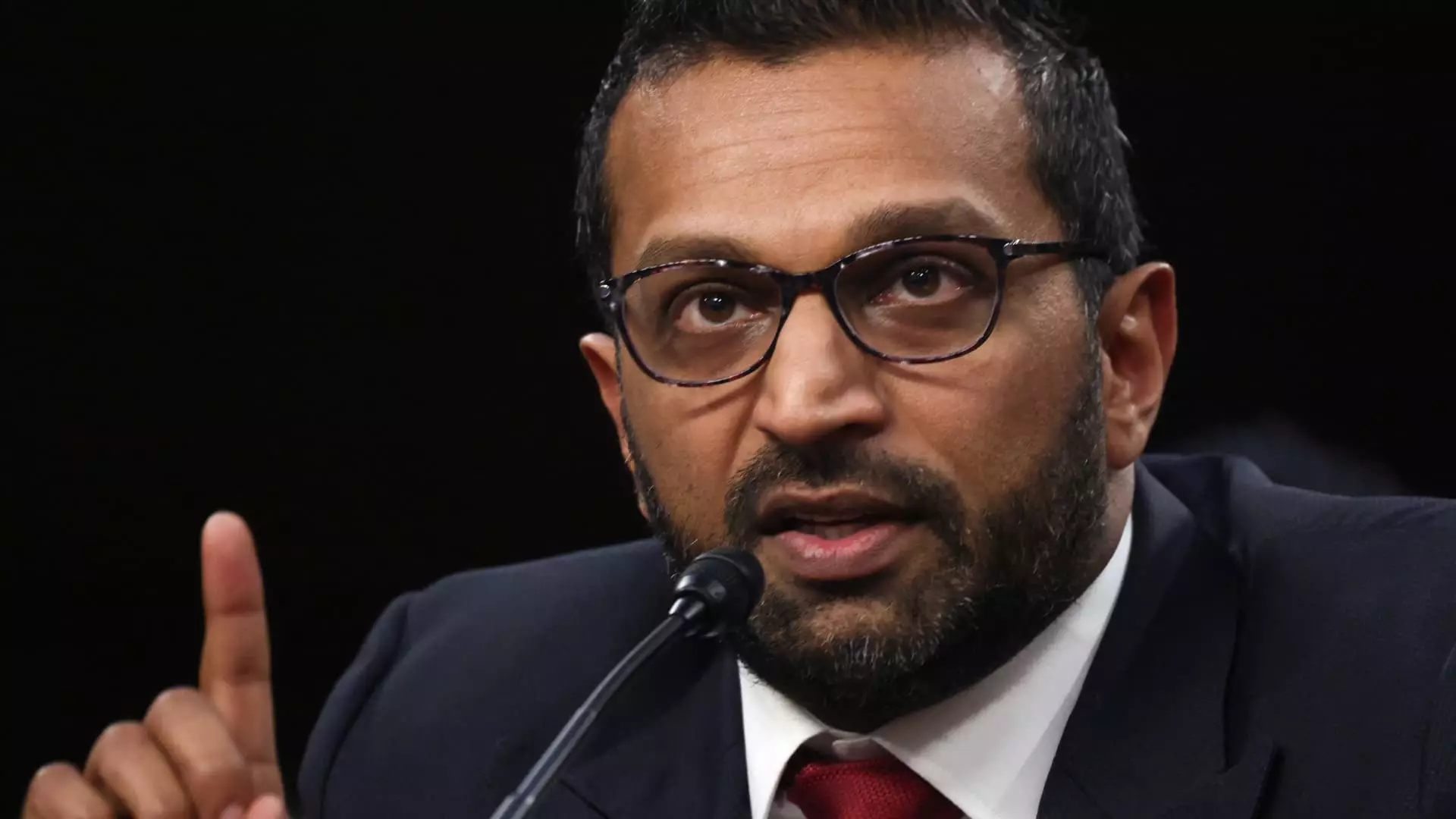The recent announcement regarding Kash Patel becoming the acting head of the Bureau of Alcohol, Tobacco, Firearms and Explosives (ATF) sparked an immediate wave of speculation and concern among various political factions. As Patel steps into this pivotal role, he also maintains his new position as the FBI Director after being sworn in just days prior. This dual appointment raises significant questions about the direction of two of the Justice Department’s most powerful agencies and highlights the intersection of law enforcement and politics in a highly charged national environment.
Patel’s appointment is particularly striking due to his close ties to former President Donald Trump. While he has garnered support from conservative circles, his strong allegiance to Trump has raised red flags among Democrats. His plans to enact sweeping reforms within the FBI have resulted in skepticism about the implications for justice and civil rights. Critics worry that under Patel’s leadership, the FBI may veer towards a more partisan agenda, undermining the agency’s credibility and independence.
In the context of the ATF, a bureau that has faced enduring criticism from conservative groups and advocates for gun rights, Patel’s arrival is likely to exacerbate the ongoing tensions. With the ATF tasked with regulating firearms and preventing gun violence, Patel’s history of aligning with pro-gun interests raises poignant questions about the agency’s future strategies and enforcement tendencies.
The background against which Patel’s appointment takes place is equally fraught with intrigue. Just days before the announcement, Attorney General Pam Bondi dismissed Pamela Hicks, the ATF’s chief counsel, claiming that the agency had been unfairly “targeting gun owners.” This dismissal underscores the contentious atmosphere surrounding gun rights and regulations, particularly during the Biden administration, which has sought to tighten gun control measures through various initiatives aimed at addressing issues like ghost guns and background checks.
The politically polarized climate complicates matters for the ATF, which, under previous administrations, has often been scrutinized for its regulatory roles. The existing notion among conservatives that the ATF should be dissolved echoes a long-standing dissatisfaction with the agency’s enforcement capabilities. This ideological divide suggests that Patel’s appointment could lead to drastic shifts not only in policy but also in the agency’s operational focus.
The Reaction from Advocacy Groups
The response to Patel’s dual leadership roles reveals a stark divide in the national discourse surrounding gun ownership and regulation. Advocacy groups such as Brady, which pushes for enhanced gun control, have denounced Patel’s known affiliations with more extreme gun rights advocacy as alarming. Conversely, organizations like Gun Owners of America celebrated his confirmation, framing it as a victory for protecting constitutional rights.
These contrasting perspectives highlight a broader societal conflict over gun rights and public safety. With Patel at the helm, both the FBI and ATF could see shifts that cater more to pro-gun sentiment, potentially compromising public safety efforts. Critics fear that the prioritization of gun rights over regulations could embolden illegal firearms transactions and violence.
The appointment of Kash Patel to lead both the FBI and ATF raises pressing questions about how these two agencies will navigate political pressures while fulfilling their mandates to ensure public safety and uphold the law. Given the complex nature of firearms regulation in the U.S., the implications of Patel’s leadership could resonate deeply in communities across the country, particularly those advocating for stronger gun control measures.
Despite the necessity for comprehensive gun policies, it is apparent that the appointment of Patel—an individual viewed through lenses of distrust and partisanship—could hinder progress or provoke further conflict. As both agencies continue to grapple with their roles in a divided nation, the prospect of overlapping leadership harbors challenges that could affect public trust and agency effectiveness in dealing with one of the most contentious issues of our time: gun rights and regulation.


Leave a Reply